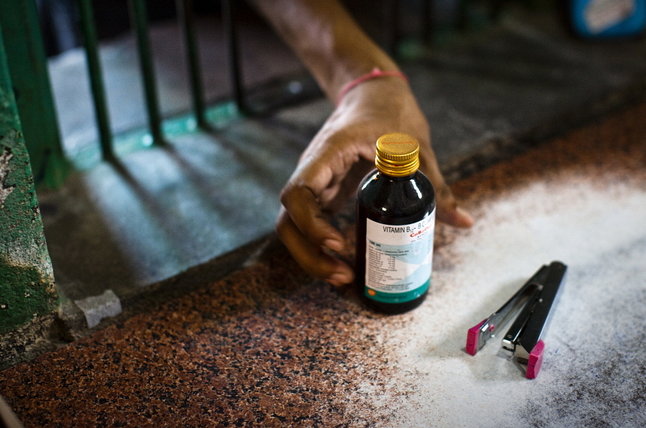By: Sara Naraghi
Send to a friend
The details you provide on this page will not be used to send unsolicited email, and will not be sold to a 3rd party. See privacy policy.
“I hope they explain what a fairness index is,” I said to my editor as we walked into a conference on the creation of a global fairness index for health, which took place in London, United Kingdom, on 16-17 April. The conference was hosted by the Council on Health Research for Development (COHRED), a health research NGO. COHRED plans to develop a self-assessment system for research partnerships to determine their level of equality.
Initially I thought the reason I wasn’t entirely certain what COHRED was proposing was because I’m not involved in scientific research. But soon I figured out that I wasn’t the only one who was confused.
Over the two days, I heard scientists, academics and funders again and again voice their concerns over the lack of concrete specifics on what the index would measure, how it would become a reality and how it was going to function in the real world.
COHRED’s aim is laudable, it wants to enable all players involved in research “to engage in and sustain fair research and innovation”. This conference was an opportunity to discuss with scientists and shape the direction and objectives of the index.
But confusion reigned even around the precise name of the instrument. Throughout the first day, various people used the term ‘fairness certificate’ instead of fairness index. Some preferred ‘initiative’. There was even a joke about possible acronyms — CFI, CFC, or the crowd favourite KFC (not Kentucky Fried Chicken).
“The conference succeeded in facilitating a discussion, but did not result in a neatly packaged and finalised index.”
Sara Naraghi
Jutta Reinhard-Rupp, who heads an innovation group at pharmaceutical company Merck, spoke about her reluctance to use the index, because, she said, pharmaceutical companies are already inundated with various indices they are asked to adhere to. Convincing company leaders and board members to sign up to yet another index might prove difficult, she said, and suggested that using the term ‘certificate’ might make the concept more appealing.
But Julian Kinderlerer, the president of the European Group on Ethics in Science and New Technologies, pointed out that “with certification comes responsibility”. He was worried that the term ‘certificate’ implies the compliance with legislation and treaties, which COHRED cannot control.
The executive director of COHRED, Carel Ijsselmuiden, explained how the fairness index would sit roughly in the middle of a list of activities already in place, such as the Nagoya agreement or the Commission for Research Partnerships with Developing Countries’ best practice principles, which encourage the equity of global research partnerships.
He gave examples of what a CFI could help achieve in real terms: having a “competent” research administrator in a developing country institution, or shifting decision-making power away from those with financial power.
“We have to feel empowered despite our small purse,” said one developing country delegate.
As the conference drew to a close, plenty of questions remained. Would the CFI hinder the volume or speed of innovation? How would one index be applied to the private and public sectors universally? Is trust and transparency going to be an objective of the index? The conference succeeded in facilitating a discussion, but did not result in a neatly packaged and finalised index.
Despite the reservations, there was an almost universal acknowledgment that the index is a good idea in principle. “No one can be against fairness,” pharmaceutical companies, academics, donors and NGOs agreed.
COHRED plans to launch a version of the index in October. But what exactly it will launch, and how this will be applied, remains to be seen.














